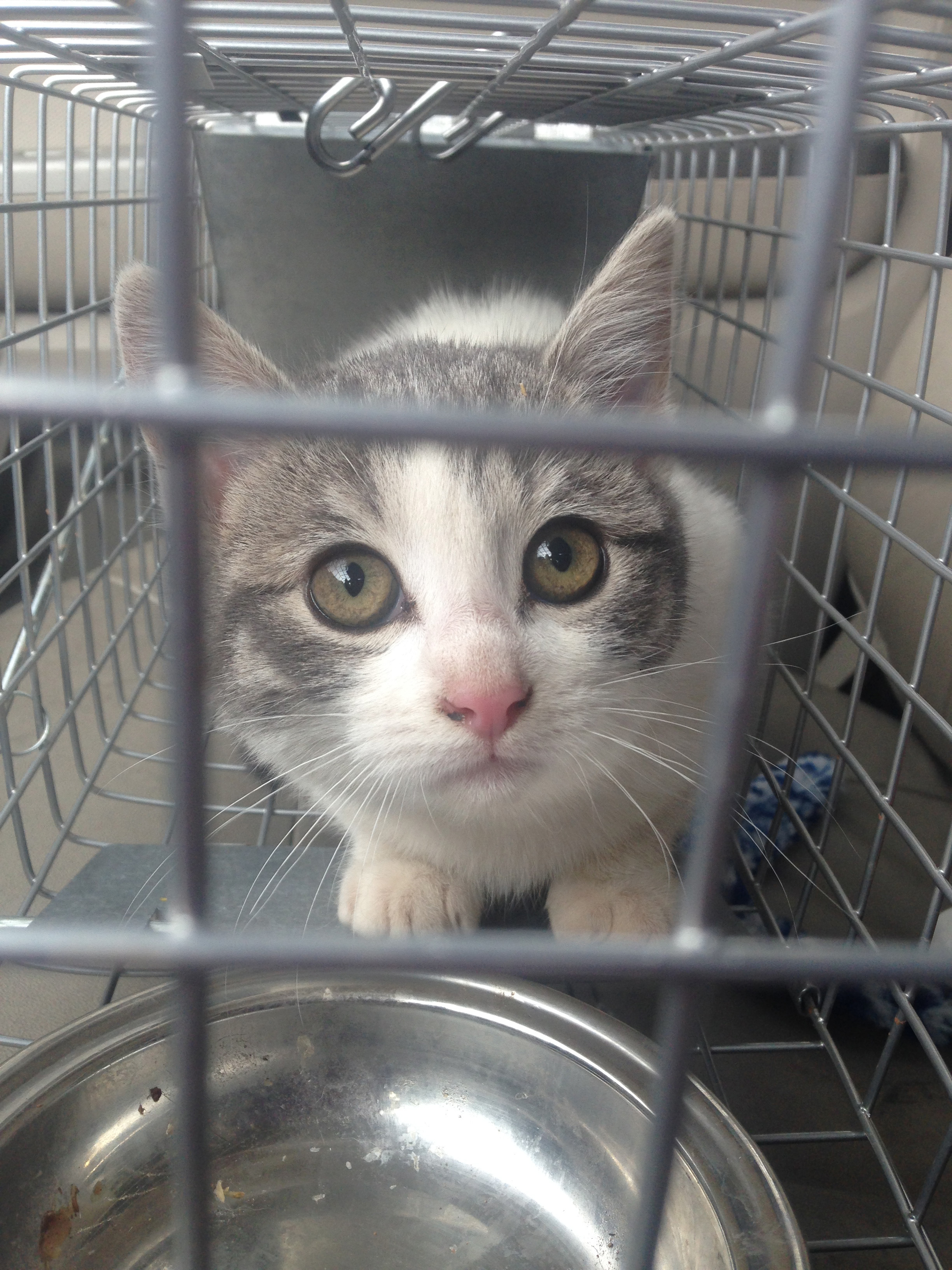Trap, Neuter, Return/Reloc
ate (TNR)

TNR is a way to manage colonies of stray and feral cats humanely, more effectively and less expensively than the eradication approaches. These colonies are the result of pet abandonment or straying and failure to spay and neuter. The ferals are the offspring of the abandoned/lost pets and unless they are living very near people, are very wild and mistrusting of people. They are NOT socialized or like friendly barn kitties; handling them is dangerous and should not be attempted by anyone not trained to do so safely. People living nearby often feed the cats so the colony forms around this resource, and of course grows rapidly. A pair of breeding cats (capable of having two or more litters per year) can produce 420,000 offspring over a seven-year period. U.S. animal shelters are forced to kill millions of homeless cats annually. Cats that do not end up in shelters cannot fend for themselves and many die from starvation, disease, abuse, or as food for a predator. And of course, they are not vaccinated and thus can pass diseases to both people and local domestic pets who wander outdoors.
LAWS began a pilot TNR program in one area just outside the Laramie city limits (stray animals currently must be turned in to the Laramie Animal Shelter; TNR is illegal within the city limits, though we are working to change that) in October of 2013, with the help of two local veterinary clinics who give us discounted rates for the surgery and vaccinations and other medical care the cats need. Our volunteers identify a colony (often residents call to ask what to do about the cats), and then assist local residents to trap the adults and then deliver the cats to a vet clinic. Spay or neuter, vaccinations (Rabies and Feline Distemper Combo), parasite treatment if needed and treatment of wounds found at time of surgery are carried out by the veterinarian, and the cat is returned after a 24-hour recovery period to where it was trapped. It now is healthier, cannot breed, and does not constitute a health danger to either pets or people. Additionally, those established residents discourage other strays from joining the colony. If a few do, they can be identified because their ear is not notched, and they can be trapped and processed and returned. Local residents agree to provide fresh food and water daily and also shelter (we have volunteers who construct shelters if there are none locally).


Apply to partner with LAWS to treat a feral colony below: